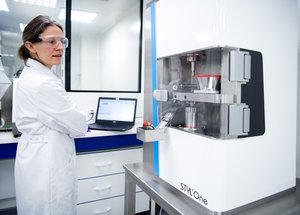The challenges and opportunities of complex nutraceutical products
The global nutraceuticals market is expanding rapidly, having reached $317.2 billion in 2023 and projected to grow at a CAGR of 9.6% through 2030, driven by a growing focus on preventive healthcare and personalized wellness solutions.
Nutraceuticals—ranging from supplements to fortified foods—offer benefits beyond basic nutrition, but their formulation presents unique challenges. Advanced delivery systems, including modified-release tablets, enteric coatings, and microencapsulation, are increasingly used to enhance bioavailability, stability, and consumer compliance while providing targeted or sustained release of active ingredients. These technologies can improve efficacy and differentiate products in a competitive market, although their success depends on robust scientific validation. Key formulation hurdles include poor powder flowability, compressibility issues, and instability of sensitive ingredients prone to oxidation or degradation.
Additionally, balancing high active loads with patient-friendly dosage forms remains critical, especially for pediatric and elderly populations. Strategies such as pellet-based formats and multiparticulate systems allow manufacturers to combine incompatible actives or achieve dual release profiles—offering both innovation and practicality. Ultimately, the success of complex nutraceuticals lies in a formulation approach that marries functionality with manufacturability while addressing consumer expectations and regulatory constraints.

Comments
No comments posted yet.
















